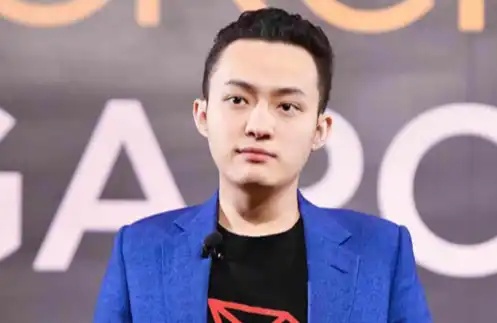Marc Andreessen: The "Power Broker" of White House Tech Authority
Original Title: Marc Andreessen Bet Big on Trump to Ward Off Tech's Detractors
Author: Sophie Alexander
Translated and Adapted by: Luffy, Foresight News

Marc Andreessen (center) and his allies have gained significant influence in Washington, with some assuming senior positions in the Trump administration. Bottom row from left to right: Sriram Krishnan, Joe Lonsdale, David Sacks, Michael Obadal, and Peter Thiel.
When Elon Musk had a public fallout with Donald Trump, other tech titans had already been quietly laying the groundwork to influence Washington for years. Among these titans, few have wielded influence as far-reaching as Marc Andreessen. Once a longtime donor to the Democratic Party, this California venture capitalist has shifted his political stance dramatically to become a close ally of Trump. Andreessen remarked that his transformation became unequivocal after being snubbed by former President Joe Biden at the White House last year.
At the time, Andreessen, along with his longtime investment partner Ben Horowitz, had traveled to Washington. Together, they co-founded Silicon Valley’s renowned venture capital firm, Andreessen Horowitz (a16z). Concerned about Biden’s stance on cryptocurrency, they hoped to discuss artificial intelligence (AI) with the then-president, but Biden declined to meet with them. Instead, they were left to meet with senior administration staff, whose aggressive vision for AI regulation left the investors deeply unnerved. “At that moment, we were like, ‘Oh my God, they’re out to destroy us,’” Andreessen recalled on a podcast earlier this year. “They’re going to kill our companies.”
From that day forward, Andreessen said he gave his full support to Trump. Even before that pivotal White House visit, the Biden administration’s relationship with the tech industry had already grown tense. Biden had appointed regulators like Lina Khan to the Federal Trade Commission, aiming to curtail the tech sector’s growing economic power. At the same time, larger societal shifts were underway: many Americans were growing wary of social media platforms and Big Tech, while inside these companies, some employees were pushing back against how their bosses handled issues ranging from misinformation to war and immigration.
For many seasoned professionals in the tech industry, this is a perplexing reversal. "From Anderson's speeches and articles over the past few years, you can tell he takes things very personally. He feels hurt by all the opposition and criticism," said Margaret O'Mara, a historian of Silicon Valley and professor at the University of Washington. "They are accustomed to being listened to, and not being heard frustrates him deeply."
Today, Anderson is deeply intertwined with the Trump administration, wielding significant influence in reshaping Washington’s culture. Similar to Silicon Valley billionaires Elon Musk and Peter Thiel, Anderson's network includes more than six allies who have been appointed to senior positions, overseeing industries and companies he supports.
"President Trump has promised to ensure that America holds a dominant position in artificial intelligence and other cutting-edge technologies that will define the 21st century. The administration is committed to working with the best and brightest in the private sector to realize this mission," said White House spokesperson Kush Desai.
Anderson, along with former employees of a16z and its portfolio companies now serving in government roles, did not respond to requests for comment on this article. Since Trump’s inauguration, companies connected to Anderson have seen significant victories: the U.S. Securities and Exchange Commission (SEC) dropped a civil enforcement action against Coinbase Global Inc.; OpenAI was included in the planned $500 billion Stargate AI infrastructure project; and defense tech startup Anduril secured a U.S. Army contract to manage and manufacture a new type of infantry goggles, a deal that could be worth over $20 billion.
At the same time, others caution that ties to Trump do not guarantee favorable outcomes. Elon Musk, once closely associated with Trump as the head of DOGE (Digital Office for Government Execution), has recently had a public falling out with the president, who threatened to cancel government contracts for SpaceX and Tesla. Coinbase is under a new SEC investigation into whether it misreported user numbers; the company's chief legal officer has dismissed it as a "legacy issue of the Biden administration that should no longer persist." Moreover, like many other industries, the tech sector has also been hit by Trump’s unpredictable tariff policies.
"They’ve put their eggs in what is a fairly fragile Trump basket," said O'Mara. "It’s a high-stakes gamble that could either pay off or backfire."
Here are the key areas where Anderson wields influence in Washington:
Defense Technology
Objective: In 2022, a16z launched a national security-focused initiative called "American Dynamism," which primarily invests in defense tech startups, including companies manufacturing autonomous drones, aircraft, and ships. The project’s success hinges on securing government contracts, which are highly competitive and involve lengthy, complex processes.
Anderson’s Allies: Several former employees of Anduril, a key defense investment project by a16z, have joined the government, including the Pentagon. Among them, Michael Obadal, who was nominated in March to serve as the Army's second most senior civilian, previously served as a Senior Director at Anduril; another, Ryan Wunderly, was a robotics engineer at Anduril before joining the Treasury Department's DOGE division.
Highlights: According to PitchBook data, from 2021 to early this year, the Pentagon, focusing on innovation, has invested over $130 billion in defense tech startups—double the amount invested in the prior four years. Crunchbase data shows that between 2021 and August 2024, a16z invested in 14 related companies, more than any other venture capital firm. Other leaders in the defense tech investment sector include 8 VC, co-founded by Palantir Technologies' Joe Lonsdale, and Thiel’s Founders Fund. Last week, Anduril announced its valuation doubled compared to the previous year, reaching $30.5 billion in a new funding round led by Founders Fund.
Cryptocurrency
Goal: Anderson hopes the government encourages the development of the cryptocurrency industry by establishing a more lenient regulatory framework to normalize cryptocurrency applications in society. In 2022, President Biden signed an executive order calling for the "responsible development of digital assets." Anderson described the administration's approach at the time as "a terrorist act," alleging that Biden sought to prevent crypto startup founders from accessing U.S. banking services—a claim federal officials have denied.
Anderson’s Allies: Brian Quintenz, who oversees crypto policy at a16z, has been nominated to lead the Commodity Futures Trading Commission (CFTC), which regulates cryptocurrencies. Quintenz has pledged to recuse himself from matters directly involving the company or its funds for two years unless a waiver is granted. On Tuesday, the Senate held a confirmation hearing for his nomination.
Highlights: A Trump-era executive order outlined the goal of making the United States "a hub for digital financial technology innovation" and ensuring cryptocurrencies are "free from restrictive regulations or unnecessary government intervention." The Trump family business has launched a meme coin and hinted at plans to acquire billions of dollars in Bitcoin. In Congress, Anderson supports the "GENIUS Act," which seeks to create standards for so-called stablecoins—digital currencies pegged to the value of other assets. Another proposed bill, the "CLARITY Act," aims to enhance regulatory transparency for cryptocurrency trading platforms like Coinbase, thereby reducing legal risks. Chris Dixon, a general partner at a16z, stated in a company release that they back both pieces of legislation.
Artificial Intelligence
Goal: Anderson has made deep investments in dozens of artificial intelligence companies and aims to secure favorable regulations so the industry can rapidly expand in the U.S. and surpass foreign competitors.
Anderson's Allies: Sriram Krishnan, who has served as a general partner at a16z for four years, joined the White House as a senior AI policy advisor, collaborating with Trump's cryptocurrency and AI lead, David Sacks. Sacks, a longtime ally of Musk and Thiel, often echoes Anderson’s views on artificial intelligence. According to Politico, Peter Bowman-Davis, a 22-year-old a16z engineering fellow on leave from Yale University, has been appointed acting Chief AI Officer at the U.S. Department of Health and Human Services. Wired reported in May that OpenAI had met with the Food and Drug Administration (FDA) to discuss potential collaborations, with Bowman-Davis reportedly participating in the agency’s AI planning discussions.
Key Developments: On his first day in office, Trump repealed an executive order issued by Biden in 2023 that aimed to establish a regulatory framework for federal oversight of AI development. A tax bill passed by the House in May included a provision that would prevent states from implementing new AI regulatory rules for the next decade. Over 200 bipartisan state lawmakers have urged Congress to overturn this measure.
In May, Krishnan joined Trump in the Persian Gulf for a meeting with Saudi Crown Prince Mohammed bin Salman, accompanied by Horowitz, Musk, OpenAI CEO Sam Altman, and others. Krishnan helped facilitate a deal to sell over a million Nvidia chips to the UAE. "This kind of 'AI diplomacy' will help anchor the U.S. tech stack in the region," he posted on X. However, concerns have been raised that this could shift computing power out of the U.S. and potentially into the hands of Chinese companies.
Other Connections
Anderson also has allies within the Office of Personnel Management (OPM), effectively the human resources arm of the federal government. Trump's appointee to lead the agency, Scott Kupor, was formerly a managing partner at a16z and describes himself on LinkedIn as the firm’s "employee #1." OPM works closely with DOGE on federal workforce reduction initiatives.
Greg Hogan, formerly the VP of Infrastructure at Comma.ai, a company backed by a16z, is now serving as the Chief Information Officer (CIO) of the Office of Personnel Management (OPM), where he oversees data and cybersecurity for the agency. The Treasury Department's newly appointed CIO, Sam Corcos, is the co-founder and CEO of Levels, a food-tracking startup that received investment from a16z in August.
Welcome to join the official BlockBeats community:
Telegram Subscription Group: https://t.me/theblockbeats
Telegram Discussion Group: https://t.me/BlockBeats_App
Official Twitter Account: https://twitter.com/BlockBeatsAsia
 Forum
Forum OPRR
OPRR Finance
Finance
 Specials
Specials
 On-chain Eco
On-chain Eco
 Entry
Entry
 Podcasts
Podcasts
 Activities
Activities








